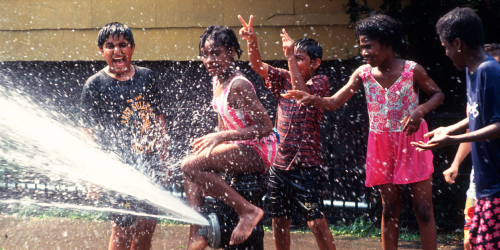Extreme heat is the deadliest impact of the climate crisis—and it’s only getting worse.
Our policy brief reveals that the Low Income Home Energy Assistance program (LIHEAP), a federal program designed to help low-income and vulnerable households with their energy bills, is severely underfunded and unprepared to support households in our changing climate.
Learn more in a brief by WE ACT for Environmental Justice and the Natural Resources Defense Council (NRDC) titled, LIHEAP Needs a Lifeline: A Call to Strengthen the Low Income Home Energy Assistance Program in a Changing Climate.
Millions across the United States are forced to choose between essentials like food, lifesaving medication, and rising energy costs for cooling. These impacts are not felt equally as communities of color and low-income are the worst hit by extreme heat. To protect against the impacts of heat and create climate resilient communities, LIHEAP needs to be adequately funded, eligibility barriers need to be addressed, and public participation needs to be improved. Learn more and share our brief here.
Our brief on LIHEAP highlights:
- Growing frequency of extreme heat events and their devastating impact on vulnerable populations, especially people of color and low-income, the elderly, children, and those with chronic health conditions;
- Shows the disparity in assistance, with only 17% of eligible households receiving benefits; and many states running out of funds partway through the summer.
So what are some solutions?
- LIHEAP runs out of money too soon in the season and has large gaps. Congress must scale LIHEAP funding up to $40 billion annually;
- The program needs to remove barriers for eligibility to ensure lifesaving cooling assistance reaches all in need; and
- LIHEAP should increase public participation so that communities can offer feedback on improvements and get important information ahead of time.
“More and more families are facing the real-life consequences of climate chaos—extreme heat is killing people and making them sick in their own homes. Our communities, many of whom don’t own housing and are overburdened by the rising cost of living, should not have to risk their lives to avoid exorbitant energy bills. LIHEAP funding levels are not able to meet the needs of this urgent moment, especially as extreme heat continues to grow year after year. To save lives and build climate resilience in vulnerable communities, LIHEAP must be comprehensively reformed, beginning with a significant investment from Congress to adequately fund the program as life-threatening heat becomes our new reality,” said Caleb Smith, Resiliency Coordinator at WE ACT for Environmental Justice.


